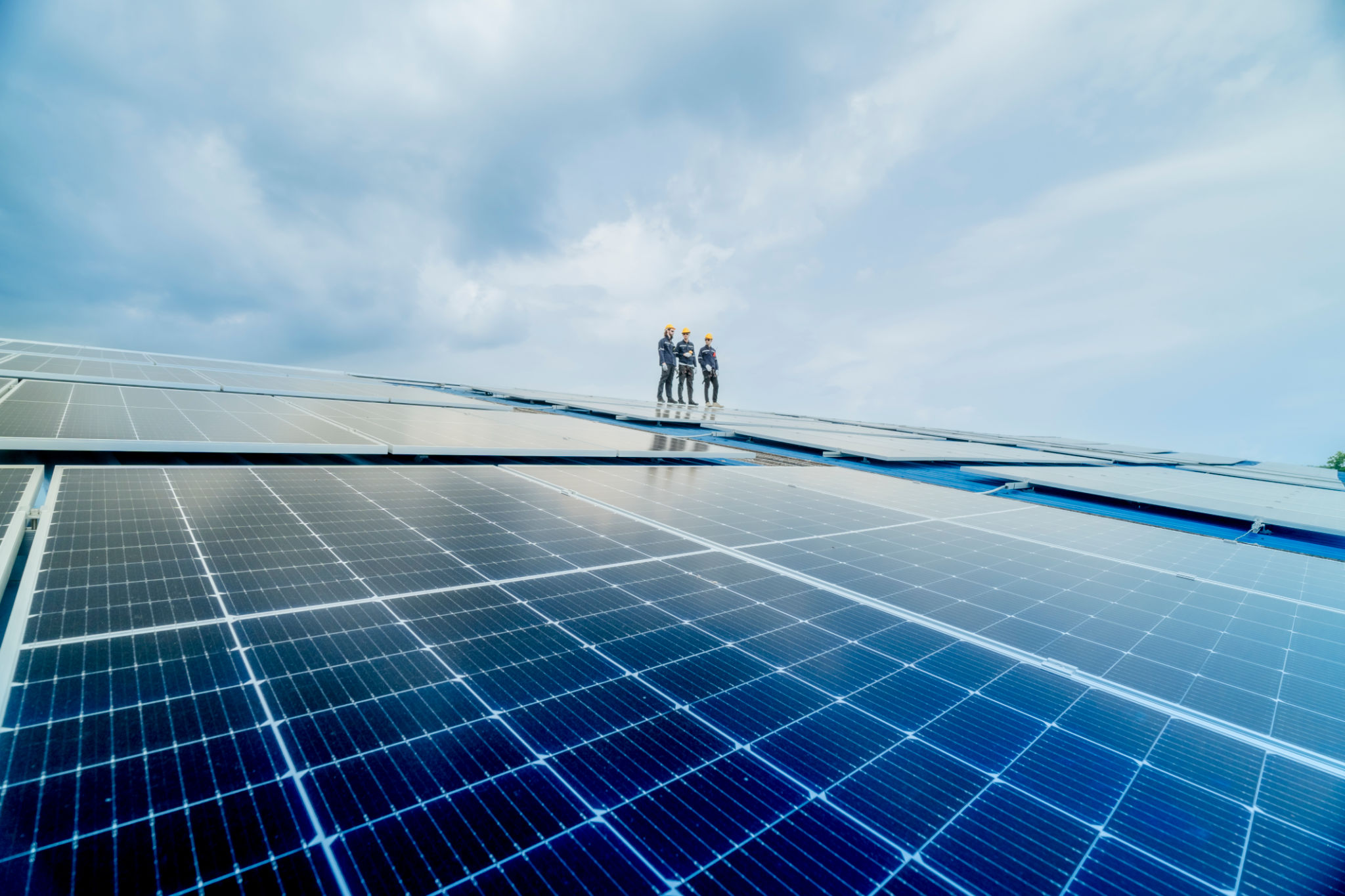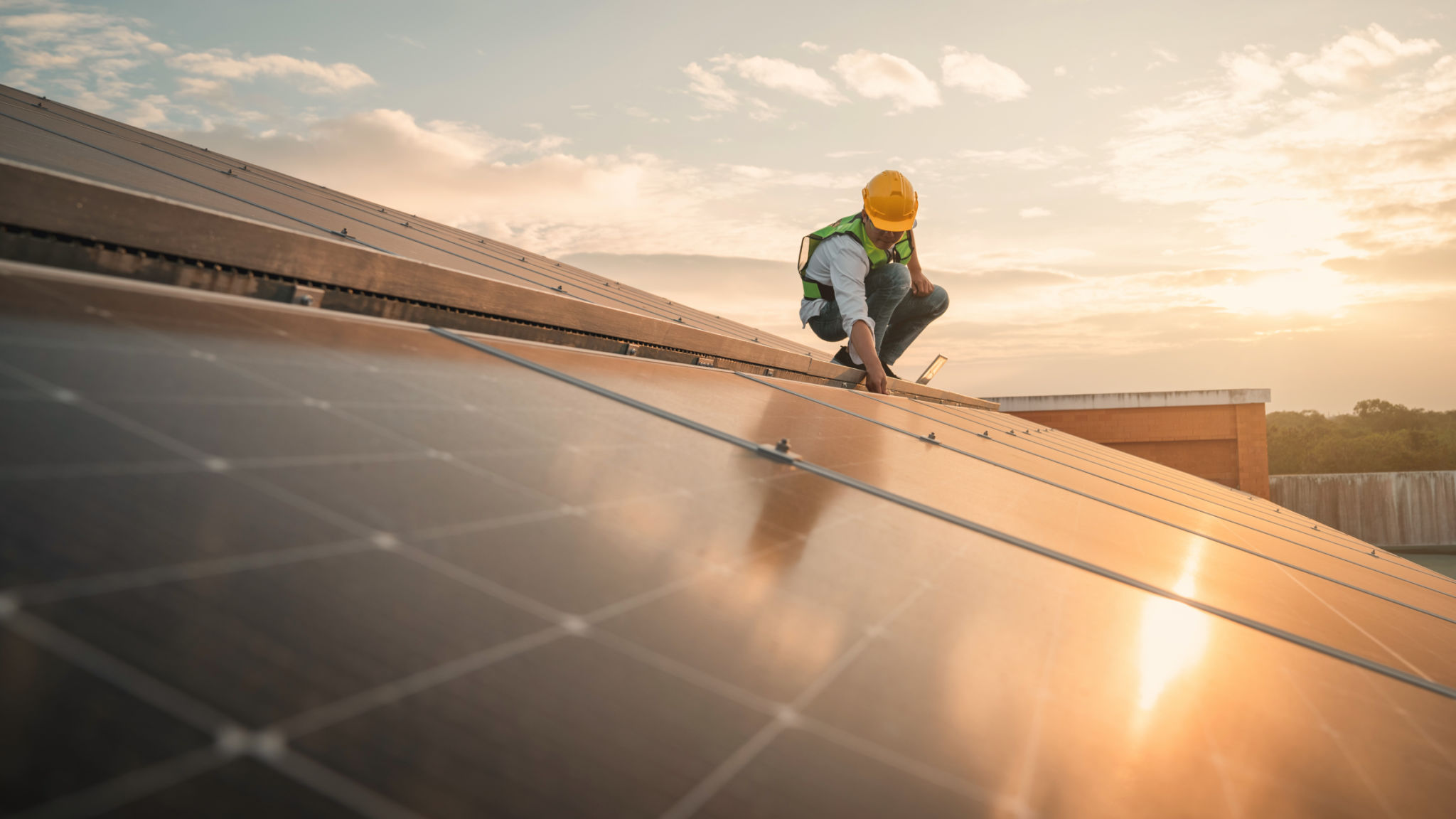Preparing Your Home for Solar Panel Installation: A Step-by-Step Guide
Understanding the Basics of Solar Panel Installation
Solar energy has become an increasingly popular choice for homeowners looking to reduce their carbon footprint and save on energy costs. Before jumping into installation, it's crucial to understand the basics of solar panels, including how they work and the benefits they offer. This foundational knowledge will help you make informed decisions as you prepare your home for solar panel installation.
The first step is assessing whether your home is a good candidate for solar panels. Consider factors such as your roof's condition, the amount of sunlight your property receives, and local regulations or incentives. Understanding these elements can streamline the installation process and ensure you get the most out of your solar system.

Conducting a Roof Assessment
A thorough roof assessment is essential before installing solar panels. Start by examining your roof's age and condition. If your roof is nearing the end of its lifespan, it might be wise to replace it before installation to avoid future complications. Ensure there are no structural issues that could impede the installation.
Consider the roof's orientation and pitch, as these factors influence solar panel efficiency. Ideally, a south-facing roof with a slope between 15 and 40 degrees is optimal for capturing sunlight. Remove any obstacles like overhanging branches or debris that might cast shadows on your panels.

Evaluating Energy Needs
Understanding your household's energy consumption is crucial for determining the size of the solar system you'll need. Review past utility bills to analyze your energy usage patterns and identify times of peak consumption. This information will guide you in selecting a system that meets your needs without over-investing in unnecessary capacity.
Once you've established your energy requirements, consult with a professional to design a solar system tailored to your home. They can provide insights into the best equipment and technology options to maximize energy efficiency and savings.

Navigating Permits and Regulations
Before installation, familiarize yourself with local building codes and zoning laws related to solar panel installations. These regulations can vary significantly by region, so it's important to ensure compliance to avoid legal issues down the line.
In many areas, you'll need permits for installation, which may involve inspections or approvals from local government agencies. Working with a reputable solar installer can simplify this process, as they often handle permit applications and ensure all regulatory standards are met.
Choosing the Right Installer
Selecting a qualified solar installer is vital for a successful installation. Look for companies with strong reputations, positive customer reviews, and relevant certifications such as those from the North American Board of Certified Energy Practitioners (NABCEP).
When evaluating installers, request multiple quotes and compare their offerings. Consider factors like warranties, post-installation support, and service agreements. A reliable installer will provide clear communication and answer any questions you have during the process.

Preparing Your Home for Installation Day
As installation day approaches, take steps to prepare your home for the arrival of the installation team. Clear any obstructions around your home's exterior and ensure easy access to the roof and electrical panels. Inform neighbors about the upcoming work to minimize disruptions.
On installation day, expect some noise and activity as the team sets up scaffolding and equipment. The duration of the installation will vary depending on the size of your system but typically takes one to three days.
Post-Installation Considerations
After installation, your solar system will need to be inspected by local authorities or utility companies before it can be activated. This step ensures everything meets safety and operational standards. Once approved, you can begin generating clean, renewable energy for your home.
Monitor your system's performance regularly to ensure it's operating efficiently. Many systems come with monitoring apps or tools that allow you to track energy production in real-time, helping you identify any potential issues early on.

